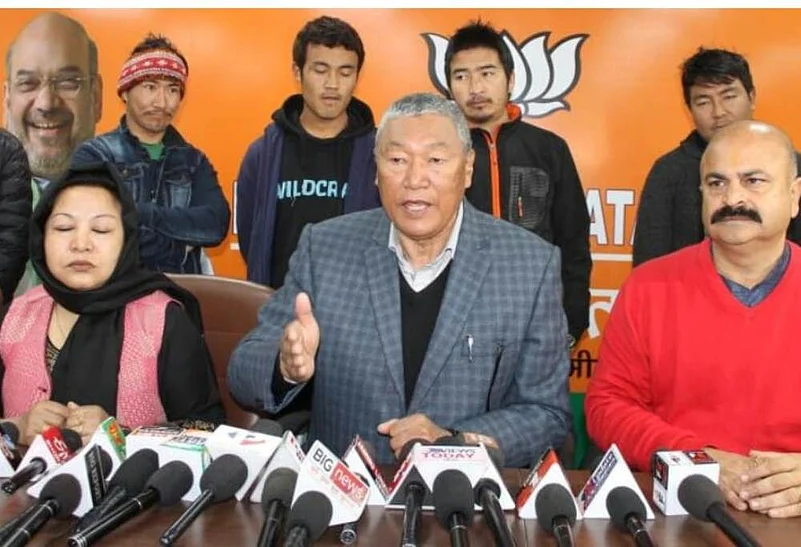Everything in the Union Territory of Ladakh is being run by bureaucrats, who are not from here and care little about us, says Chering Dorjay, who resigned as the BJP President in the area and left the party.
Almost nine months after the Centre abrogated Article 370 and moved a separate motion to bifurcate the erstwhile state into the union territories of Jammu and Kashmir and Ladakh, Dorjay said the development and autonomy they expected have been dashed. Lakruk had tendered his resignation on Sunday and accused UT administration of “utter failure in evacuating passengers, patients, pilgrims, and students stranded at different places throughout India.”
“The deputy commissioners of Leh and Kargil were the employees of Council -- being executive members. Today, they are citing the Disaster Management Act and are wielding all the powers. The councils are without money. We were not expecting all this in the Union Territory,” Dorjay told Outlook.
Ashok Koul, the BJP General Secretary for Jammu and Kashmir and Ladakh UTs, however, dismissed Lakruk's resignation as a non-issue. Koul said Lakrook was made the BJP president Ladakh recently and had not even formed a team there. “At this time, we should support the government in the COVID-19 crises,” Koul told Outlook.
However, the ex-BJP president says “our problems don’t make any difference to the BJP.”
He alleged the UT administration has rendered autonomous hill councils of Leh and Kargil completely ineffective so much so that they protested seeking the release of funds and evacuation of stranded people in different parts of the country.
The LAHDC for Leh came into existence in 1995 during the Governor’s rule when P V Narashima Rao was the Prime Minister of India. The then Governor passed the Ladakh Autonomous Hill Development Council Act and the LHDC Leh became a reality on August 28, 1995, after elections were held in the mountainous region.
Leh district is Buddhist dominated having a population of 1,33,487 people, according to the 2011 census, and its area is 45,110 square km. Later, when in 2003, Mufti Mohammad Sayeed was the Chief Minister of the State, he established the LHDC Kargil, which has a population of 1,40,802.
Both the LHDC was enjoying considerable power over the years in the erstwhile state of Jammu and Kashmir and following the abrogation of Article 370 and bifurcation, Ladakhis were expecting devolution of more power. “Everything is running against expectations here,” Lakruk said. The BJP national president, Jagat Prakash Nadda, had appointed Cherring Dorjay as the chief of BJP’s Ladakh unit in March.
“I am pained to see the patriotic people of Ladakh who have stood with our armed forces in all the wars fought by our nation since 1948 are treated so shabbily and with disrespect by the UT administrators,” Dorjay said.
In November 2018, the then BJP MP Thupstan Chhewang had resigned from the BJP and the Lok Sabha citing "false" promises as the reason behind his decision, and not the desire to pursue "spiritual life" as projected.
There are two districts in Ladakh, Leh and Kargil, with a total population of 2,74,289. Last year in November the BJP had opened a new office in Leh at a height of more than 11,000 feet. Ladakh is a Union Territory without a legislature.
















